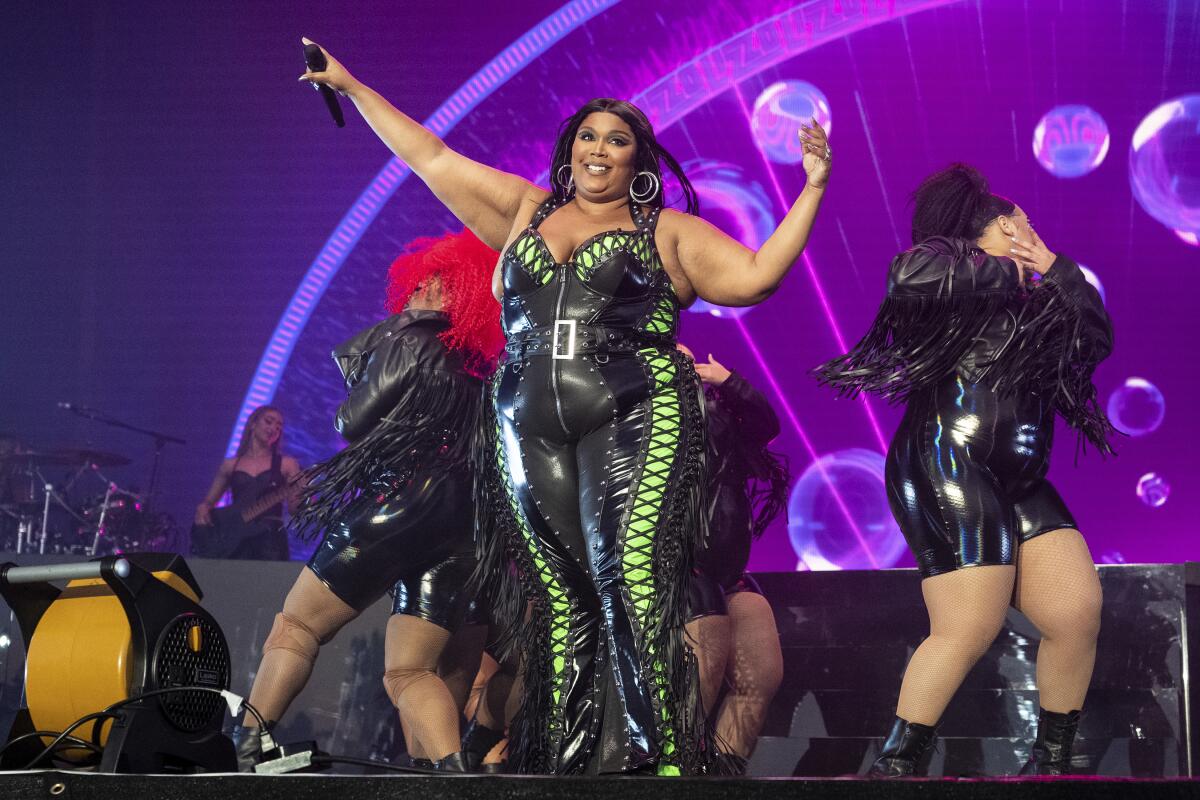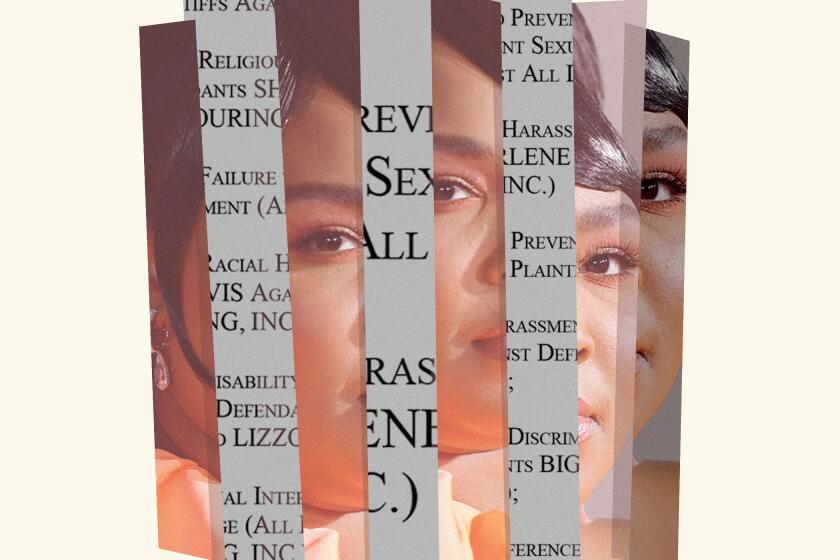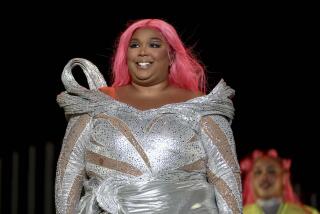Six months before the Lizzo lawsuit, 14 dancers who appeared in HBO doc settled a dispute over payments

- Share via
In a five-minute sequence in the documentary “Love Lizzo,” a group of dancers rehearsing with the star for her 2019 Video Music Awards performance talk candidly about what it means to be a female, plus-size Black dance artist.
“You can’t let nobody see you sweat,” says one dancer emotionally, while others nod and wipe tears from their eyes. “You have to be three times better than. It’s not two times. It’s three times. You know what I mean?”
But the dancers later complained that the intimate footage ended up in the 2022 HBO Max “Love Lizzo” documentary without their knowledge or consent, according to documents viewed by The Times and interviews with sources close to the dancers.
Lizzo is facing a lawsuit from former backup dancers that threatens to undo her hard-won image as a beacon of empowerment and self-acceptance.
In a Jan. 17 email to Alan Brunswick, an attorney for the co-producer Boardwalk Pictures, the dancers’ manager expressed frustration that the performers had not consented to the filming and weren’t compensated for their appearance in the documentary, in which Lizzo was also a producer.
“After seeing all of the videos, I’m sure you realize how sensitive and private the dialogue was for the talent involved,” the dancers’ manager, Slay Smiles, wrote in an email reviewed by The Times. “This was supposed to be a safe space to express and share with the Principal talent [Lizzo], so by sharing this unauthorized footage to the public without their approval/permissions, has truly exploited these women and violated the emotional safety they had in those moments.”
At issue was that while the dance artists worked under a union contract for the VMAs, they were not presented with any kind of contract for the non-union behind-the-scenes footage that surfaced in the documentary.
Brunswick told The Times that all the footage that was used of the dancers in the documentary “was captured openly” and with their consent.
“They all knew the cameras were there,” Brunswick said. “I don’t think the documentary was even contemplated at that point.”
After one of the dancers hired an attorney to press their claims, Boardwalk Pictures, a Lizzo entity and other parties signed confidential settlements with the dancers in February. The dancers released their rights to the footage and were paid for their appearance in the documentary, according to copies of the agreements reviewed by The Times.
Lizzo’s attorney, Martin Singer, said the matter was resolved when the production company made an appropriate payment for clearance of the rights for use of the footage, adding that, “Lizzo had nothing to do with it and knew nothing about it.”
The singer’s relationship with her dancers has come under scrutiny in the wake of a lawsuit filed earlier this month by three former dancers. They alleged in their complaint that the pop star sexually harassed them and created a hostile work environment, among other allegations. Lizzo, known for her message of body positivity, has dismissed the allegations as “false” and “outrageous.”
Singer has said the accusers lack credibility in part because they continued to work with the Grammy- and Emmy-award winner after the alleged incidents occurred.
The 14 dancers who settled with Boardwalk Pictures and others in February were not involved in the recent lawsuit.
The payment dispute began in late August 2022 when a clearance producer for the documentary reached out to one of the dancers, Latasha Bryant, with an offer of $350 plus a 10% agency fee for each dancer to appear in the documentary.
“We are only using 30-45 seconds of the performance scene (in the process of cutting down to 30). Although, the dancers are also seen as a group for a minute or two during rehearsals, talking with Lizzo about their hardships in the industry,” the clearance producer wrote in an email viewed by The Times. “In addition to the extra exposure, we wanted to take care of you all with our limited budget because your stories are so important to be told, and we would love to have you be part of it.”
Like other dancers, Bryant signed a confidentiality agreement and was not authorized to comment.
But sources close to her and the other dancers who were not authorized to speak publicly said the email from the clearance producer was the first time the dancers became aware that the behind-the-scenes footage would be used in the “Love Lizzo” documentary.
Bryant didn’t think the offer was fair based on previous productions where she was offered much more, the sources said.
So in late November — the day before the Lizzo documentary was released — she turned to Smiles for help securing compensation, according to emails.
Smiles, a dance artist activist formerly known as Taja Riley, took on the role of mediator and advocate for the artists in their dispute over payment due with Boardwalk Pictures, co-producer Live Nation and others. Lizzo’s management team, Full Stop Management, was also included in Smiles’ communications with the co-producers.
Smiles declined to comment on the dispute.
After two months of wrangling with Boardwalk over payment amounts, the dancers signed settlement agreements. Each received between $7,092 and $7,545 depending on their specific role and whether they sang in addition to dancing, for a total payout of $109,551, according to copies of the agreements reviewed by The Times.
The settlement agreements, which were signed by each dance artist along with a Lizzo entity, Boadwalk Pictures, Greenway Pictures, Warner Music Group Productions and Live Nation Productions, also included a nondisparagement and confidentiality clause barring the dance artists from discussing the settlement with third parties.
More to Read
The biggest entertainment stories
Get our big stories about Hollywood, film, television, music, arts, culture and more right in your inbox as soon as they publish.
You may occasionally receive promotional content from the Los Angeles Times.












